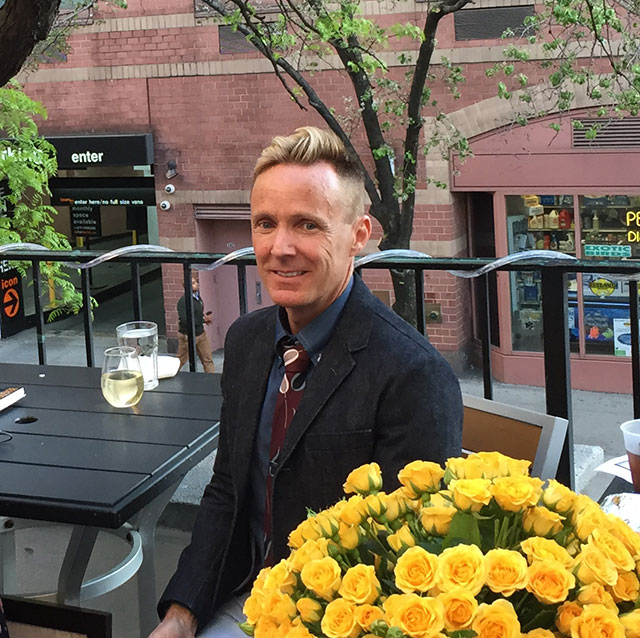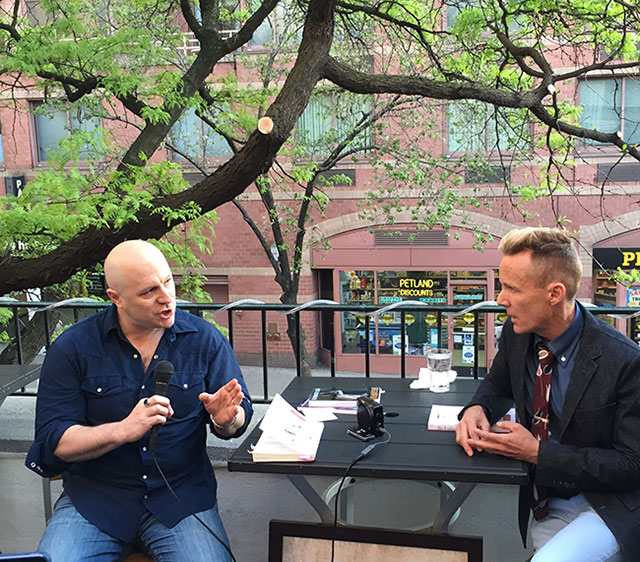
Scott Alexander Hess celebrated his latest novel, The Butcher’s Sons, last week at Boxers NYC, a rooftop bar in Hell’s Kitchen. Set in that neighborhood in the 1930’s, The Butcher’s Sons follows three Irish brothers. Hess was joined for conversation by Joseph Salvatore, editor at The Brooklyn Rail.
“I started writing when I was very young,” Hess says. Eventually he attended The New School for an MFA in creative writing. There he was reading and rereading Faulkner and McCarthy, pointing to them as influences. “Their language is genius.”
“By the end of the program I had fallen in love with language again,” Hess said, adding that it was through his MFA program that he took the leap into the type of writing he wanted to do.
The narrative voice is important to Hess’s process. He says once he finds the voice, the process of writing drives itself. Getting to that point is the challenge. “Before I get into a book, its a struggle.”
“I tend to be driven by that rhythm.”

The characters play an important role in creating the language of the book as well. Hess tries to get into the brain of a person he is writing. “I give the people the voice that’s in their head,” he explains. Then he writes in the stream of consciousness and allows the character to drive the scene.
Hess says that in the novel he wanted to explore the concepts of manliness. “I was interested in a world of masculine men,” he explains. His characters live in very close quarters, yet know very little about each other. These characters draw inspiration from his family. He has brothers, and he wanted to imagine what their lives were like or who they might be in the 1930s.
The book is about an emotional awakening for the characters. As a result, some of the graphic sex that is seen in his other novels has been tamed. His novel Diary of a Sex Addict, for instance, includes a lot of graphic sex intentionally to numb the reader. But with The Butcher’s Sons, he wanted more of an emotional response. “I didn’t want it to be about sex,” he says.
Hess has lived in New York City for thirty years, eight of those in Hell’s Kitchen, the novel’s setting. He did some research for the book, especially into the era-appropriate components of a butcher shop, although he comes from a family that sells restaurant supplies, including butchering equipment. His father began the family business selling restaurant equipment. Hess is younger than his brothers, so by the time he was alive, his father already was already successful. Hess did end up working at the family business for a while: “I wrote poetry in the back,” he says.
Scott Alexander Hess and Joseph Salvatore
Wednesday, May 6, 2015
Boxers HK